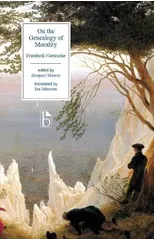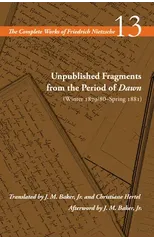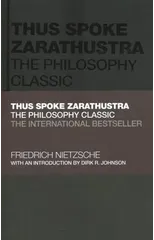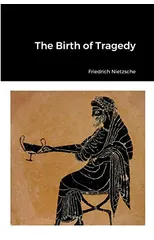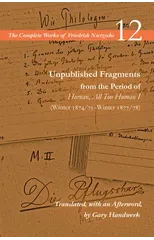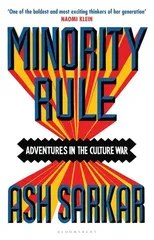On the Genealogy of Morals
(Autor) Friedrich NietzscheFor the first time in Penguin Classics: Nietzsche’s accessible exploration of key ideas in his landmark Beyond Good and Evil—in a lucid new translation Friedrich Nietzsche claimed that the purpose of On the Genealogy of Morals was to call attention to his previous writings. But in fact the book does much more than that, elucidating and expanding on the cryptic aphorisms of Beyond Good and Evil, and presenting a coherent discussion of morality in a work that is more accessible than much of his previous writings. For more than sixty-five years, Penguin has been the leading publisher of classic literature in the English-speaking world. With more than 1,500 titles, Penguin Classics represents a global bookshelf of the best works throughout history and across genres and disciplines. Readers trust the series to provide authoritative texts enhanced by introductions and notes by distinguished scholars and contemporary authors, as well as up-to-date translations by award-winning translators.
Friedrich Nietzsche
Friedrich Nietzsche was a German philosopher, cultural critic, poet, and philologist, known for his profound influence on Western philosophy and literature. His most notable works include "Thus Spoke Zarathustra," "Beyond Good and Evil," and "The Birth of Tragedy." Nietzsche's writing style was characterized by his use of aphorisms, paradoxes, and poetic language, which challenged traditional philosophical conventions.
Nietzsche's contributions to literature include his exploration of existential themes, the concept of the "Ubermensch" (overman), and the reevaluation of moral values. His ideas on the will to power, eternal recurrence, and the death of God have had a lasting impact on literature, philosophy, and cultural criticism.
Nietzsche's most famous work, "Thus Spoke Zarathustra," is a philosophical novel that explores themes of individualism, self-overcoming, and the pursuit of meaning in a godless world. The book has been praised for its literary style and innovative approach to philosophical storytelling, cementing Nietzsche's legacy as one of the most influential thinkers of the modern era.


